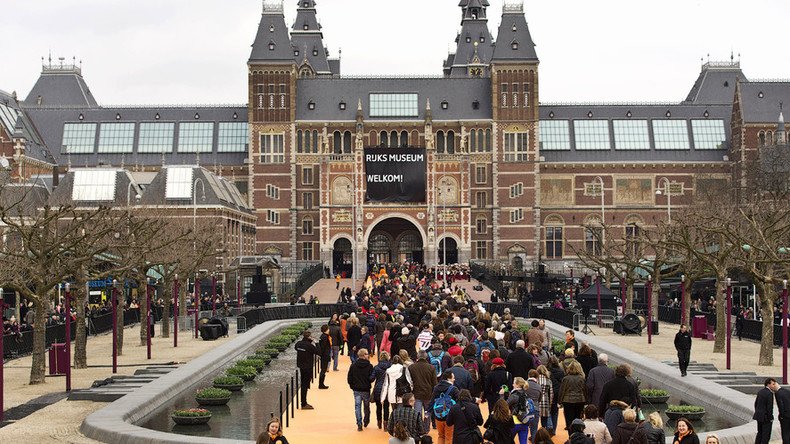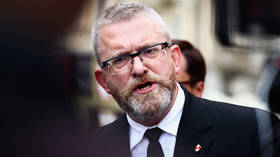Iconic Dutch museum removes ‘racist, offensive’ artwork titles

Amsterdam’s Rijksmuseum has been exposed to widespread criticism after taking the decision to change offensive terms used in the titles and descriptions of works of art to more neutral ones.
The Rijksmuseum has launched a project aimed at removing such words as “negro,” “Mohammedan,” “Indian” and even “dwarf” from titles and descriptions of items in its collection.
The implementation of the project has been triggered by part of the museum’s vast collection – over 1 million items – going online. Though it has been discussed for a few years by the staff, it was officially announced at a conference at the museum on Wednesday and first reported by the local newspaper Het Parool.
This is the first time a European museum has taken such a momentous task. Previously only names of some artworks in museums over the world have been changed.
“We’ve had complaints about specific objects or exhibitions being offensive, but to my knowledge, this is the first time we’re facing a debate with regards to the titles and the descriptions,” Raphael Roig, senior programs officer and permanent secretary of the ethics committee of the International Council of Museums (ICOM) told The New York Times. He added that the global museums association supports the museum’s notion.
However, some have been accusing the museum of pandering to political correctness. The opinion is shared by Josh Spero, an art critic for Tatler, who told The Times he believes that getting rid of derogatory terms used during some periods of our history is similar to “pretending it never happened.”
.@Rijksmuseum removes racially charged terms from artworks’ titles (via @nytimes): https://t.co/1eC7YR2uV9pic.twitter.com/FxHPXbz1g2
— Artsy (@artsy) December 10, 2015Amending racially charged terms is “dishonest, because it rewrites our history” and can be compared to censorship, art historian Julian Spalding told the paper.
“Some people are angry with us. They say “Why this change, the Rijksmuseum is trying to be so politically correct.” But in the Netherlands alone, there are a million people deriving from colonial roots, from Suriname, from the Antilles, from Indonesia, and so on that basis alone it's important to change this,” said head of history department at the Rijksmuseum and leader of the project Martine Gosselink, as quoted by NYT.
“The point is not to use names given by whites to others. We Dutch are called kaas kops, or cheeseheads, sometimes, and we wouldn't like it if we went to a museum in another country and saw descriptions of images of us as kaas kop woman with kaas kop child, and that's exactly the same as what's happening here,” she said.
Art critics have detected as many as 132 descriptions with the word “negro.” Changing them with more appropriate terms won’t take much time, museum workers promise.
On Monday, the museum announced that in 2015 it welcomed more than 2 million visitors for the third year in a row.












